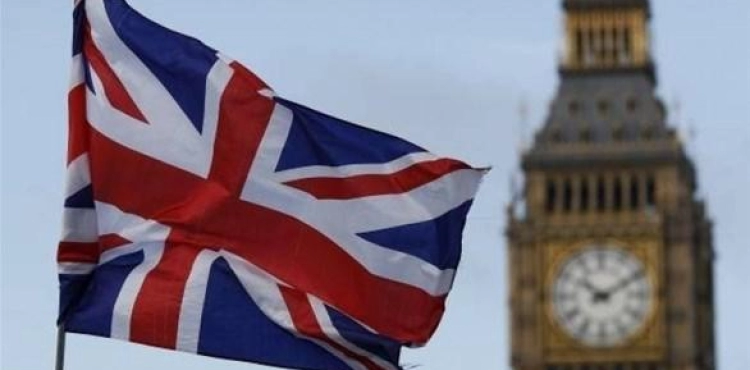In central London, a statue of the British military commander in the eighteenth century Robert Clive stands holding a sword in his sheath ... But this landmark does not appeal to everyone in Britain, which is going through a self-review phase. The country´s colonial past and teaching methods.
Following the momentum gained by the "Black Lives Matter" movement last year, monuments related to the era of slavery or colonialism were withdrawn from public spaces in Britain, but this did not include the statue of Clive, governor-general of Bengal in the eighteenth century, as it is still standing opposite the headquarters of the Foreign Ministry.
Writer Satnam Sanghera says that keeping this statue constitutes a "humiliation", given its role in exploiting millions of Indians.
In his novel, Empire Land, Sanghera explores the UK´s difficult relationship with its colonial past, which has been under review since anti-racism demonstrations last year.
During one of these demonstrations, the statue of Edward Colston, known for his slave trade, was brought down before it was thrown in the port of Bristol in southwestern England.
Although he has not been called to treat the Robert Clive statue in this manner, Satnam Sanghera believes it is time to review Britain´s colonial history better.
The British Empire, which arose between the sixteenth and nineteenth centuries, was the largest in the world and at its height ruled a quarter of the world´s population, which gave London a position of great power.
Sanghera says that teaching this history in British schools is "really disrupted".
This writer belonging to the Sikh community is still dumbfounded about the neglect of the participation of Indian forces in the First World War from the history books that he was schooled in during his studies.
"Throughout the twentieth century, the contribution of people of color has always been obscured" in history, Sanghera explains. "The situation continues as such, which makes our conversations about ethnic issues based on real hypocrisy."
In his book, he explains that the decision to abolish slavery takes more space in the country´s history curricula than the British record in this area.
"Although the British benefited from slavery for decades, violating and exploiting millions of people," he says, "the main narrative has become centered on Britain´s abolition of slavery."
To correct this imbalance, Oriana Gueye, a mother of two boys, took advantage of school closures due to the health crisis to post electronic content to other parents about black history.
"I felt it was wonderful to have resources that parents could follow up with their children and talk to them about the accomplishments of blacks all over the world," she explains to AFP.
Esme Gekyemi-Pearson, 20, is also sharing this struggle through the "Impact of Omission" movement she co-founded, to promote the mention of colonial history in school curricula.
A year before the Black Lives Matter movement, this student in Easter, southwest England, was "shocked" by the neglect of slavery in the GCSE curriculum.
"We had quotas set aside for the Industrial Revolution, and throughout these quotas there was no mention" of slavery, she says.
These classes dealt with the way cotton was used in British factories after the eighteenth century, without any mention of the "source of cotton" from farms employing slaves in America.
Parliament debated a petition calling for the reform of the teaching of colonial history in the country, which had about 286,000 signatures. However, this growing mobilization was also met with some hesitation, especially when protesters on a statue of Winston Churchill wrote the word "racist". Some parties, in particular, bear his policy that led to the death of millions of Indians during the famine in 1943.
The move was met with sharp criticism from Prime Minister Boris Johnson, author of a biography on Churchill that called for "no censorship of the past."
The aim is not to establish a positive or negative assessment of the British colonial heritage, but to improve its understanding, says Satnam Sanghera. "It is not possible to put a balanced outcome on a 500-year history," he says.












